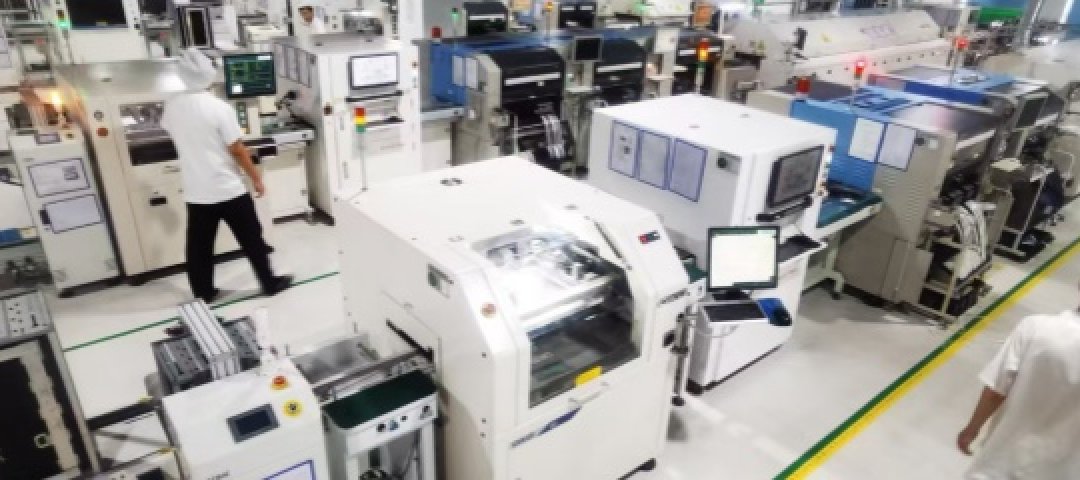Esnek PCB Montaj Sürecine Sistematik Giriş
Esnek devre kartı montajı, ince ve esnek bir yalıtım filmi üzerine tasarlanmı

With the continued development of the electronics manufacturing industry, printed circuit board (PCB) assembly is facing increasingly demanding production requirements. To meet the modern electronics industry's demands for efficiency, quality, and reduced costs, artificial intelligence (AI) is widely used in PCB manufacturing plants. The introduction of AI not only improves production efficiency but also optimizes process management, significantly transforming the industry.
1. AI Application Areas in PCB Assembly
1.1 Intelligent Production Scheduling and Resource Optimization
AI algorithms can automatically generate optimal production plans based on order requirements, equipment status, and material inventory. By analyzing historical data and real-time information, AI dynamically adjusts production schedules to avoid downtime due to resource conflicts or equipment failures.
Benefits: Reduced planning lead times, improved equipment utilization, and lower production costs.
1.2 Machine Learning-Based Quality Control
In PCB assembly, solder quality, placement accuracy, and electrical performance are critical to product quality. AI technology, combined with machine vision and deep learning algorithms, can analyze PCB images in real time and quickly identify solder defects, misplaced components, or damaged parts.
Benefits: Improves defect detection accuracy, reduces human inspection errors, and lowers the defect rate.
1.3 Intelligent Equipment Maintenance and Predictive Maintenance
By monitoring the operating status of production equipment and analyzing data (such as temperature, vibration, and energy consumption), AI can anticipate potential equipment failures, thus avoiding unplanned production shutdowns.
Benefits: Extends equipment lifespan, reduces maintenance costs, and ensures production continuity.
1.4 Automated Materials Management
Using AI algorithms combined with sensors and IoT technology, PCB manufacturing plants can implement intelligent materials management. The system updates inventory in real time based on production needs and automatically triggers replenishment requests in the event of material shortages, thus avoiding production delays due to shortages.
Benefits: Reduces inventory waste, optimizes supply chain management, and improves production efficiency.
2. Key Points of AI for Production Process Optimization
2.1 Data-Driven Production Process Optimization
AI leverages big data to monitor and analyze the entire production process in real time. By collecting key data (such as placement speed, soldering temperature, and inspection results), AI can identify potential bottlenecks and suggest optimizations, such as adjusting SMT placement machine parameters or redesigning production workflows.
Result: Reduction of unnecessary processes and improvement of overall production efficiency.
2.2 Production Flexibility
To meet diverse customer demands, PCB manufacturing plants must be able to quickly adapt to order fluctuations. AI analyzes customer orders and market trends, helping factories achieve flexible production and adjust production line configurations to meet different batch sizes or specifications.
Result: Reduction of delivery cycles and improvement of customer satisfaction.
2.3 Collaboration between AI and Robotics
AI-driven robots are used in several stages of PCB processing, such as component placement, soldering, and packaging. Guided by AI algorithms, robots can perform repetitive tasks with high precision, significantly improving production efficiency.
Effect: Reduced human error and optimized production automation.
3. Practical Cases of AI in PCB Processing
Case 1: Successful Application of Intelligent Inspection Systems
A PCB manufacturing plant implemented an AI-driven automated optical inspection (AOI) system, increasing defect detection accuracy from 95% to 99.8%. By learning from millions of images, For PCB manufacturing plants, the system can quickly identify various complex defects, significantly improving product quality.
Case 2: Predictive maintenance reduces equipment downtime
Using AI to monitor operational data from placement machines, potential equipment failures were anticipated, preventing production delays due to machine downtime. Statistics show a 15% increase in equipment utilization and a 10% reduction in production costs.
4. Long-Term Impact of AI on PCB Manufacturing Plants
4.1 Improved Competitiveness
The introduction of AI allows PCB manufacturing plants to benefit from higher levels of automation and data-driven capabilities. This not only helps reduce production costs but also speeds up time to market, thereby strengthening the industry's competitiveness.
4.2 Supporting Sustainable Development
By optimizing production processes and reducing resource waste, AI is supporting the transition of PCB processing to greener manufacturing, in line with future developments.
Principles of Sustainable Development in Industry.
4.3 Driving Innovation
AI applications are opening up new avenues for innovation in PCB processing. For example, AI can optimize PCB layouts to improve the performance and reliability of electronic products.
Conclusion
Artificial intelligence has become a powerful tool for optimizing production processes in PCB processing. From smart planning to automated inspection, from predictive maintenance to flexible production, AI has brought significant improvements to PCB manufacturing plants. In the future, with the development of AI, PCB processing will evolve into a more efficient, smarter, and environmentally friendly era, injecting new impetus into the continued growth of the electronics manufacturing industry.
16+ years experience and 300+ engineers working with overseas projects
ISO9001:2015, ISO14001, ISO13485, ROHS, and UL
designing, engineering, prototyping, and production and after-sales services
Covered 150+ countries and 3600+ customers
Reply to your inquiry within 1 hours, we provide 7/24 hours support for customers in different time zones
SMT lines+Automatic plug-in production line+Wave Soldingave Lines+Assembly lines